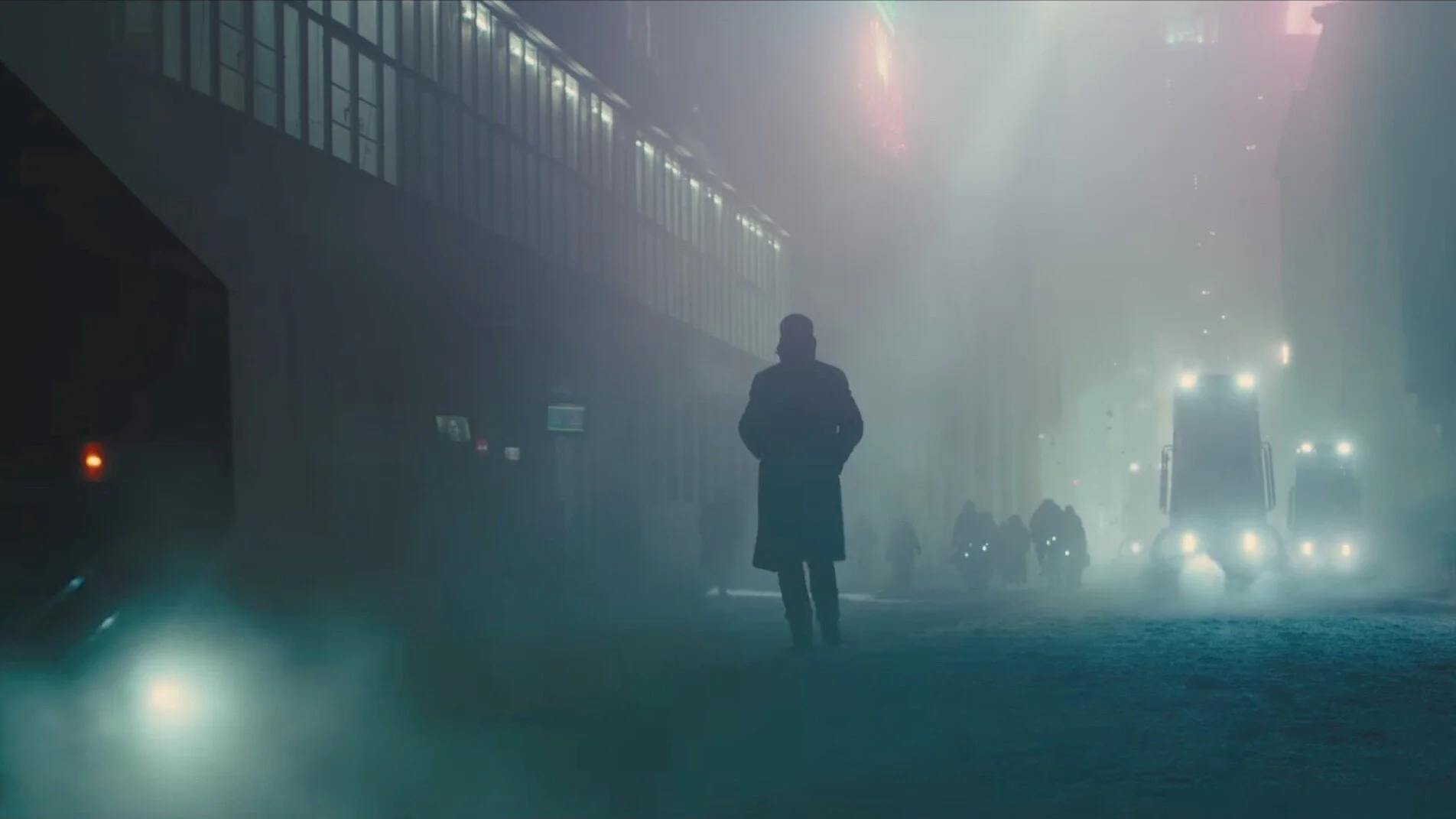Blade Runner 2049
Denis Villeneuve takes on the baton from Ridley Scott and gives us a sequel as complex, prescient and awe-inspiring as the original.
A world without cheese...
Thirty-five years ago the future was a very different place. As with his Alien, Ridley Scott’s Blade Runner (1982) was an extraordinarily prescient glimpse into tomorrow. Amazingly, the latter was set in the year 2019, a time when Los Angeles had become a much more multicultural place, the weather was crap and large corporations exercised an alarming monopoly. More significantly, the science of robotics had reached a point where androids were indistinguishable from humans. Ridley Scott also imagined a world of flying cars, telephone booths with video displays and androids who smoked. The story – adapted from Philip K. Dick’s 1968 novel Do Androids Dream of Electric Sheep? – was straightforward. An android tracker (or blade runner) set out to “retire” a bunch of rogue androids (or replicants) and met some weird shit along the way.
In its time, Blade Runner came to be accepted as one of the defining classics of its genre, even though its reception was decidedly mixed on its release. While it remains an astonishingly visual spectacle – and a frequently powerful experience – its narrative traction leaves a lot to be desired. If we were to wait another thirty-five years for a second sequel, who knows what the world will look like? The year of 2049, as depicted here, is still suffering from crap weather, is divested of all vegetation and animal life and is peopled, if that’s the right word, by replicants. But the latter line of automatons are a new, improved lot and are engineered to serve the best interests of mankind. Ryan Gosling’s replicant, just known as ‘K’ (a nice Kafka reference), works for the LAPD and on a routine mission to retire an earlier model (Dave Bautista) stumbles across an extraordinary secret. In a nod to the film’s catchphrase, “this isn’t possible,” K is summarily commanded to eliminate all traces of his discovery. But it’s left a gnawing doubt in his mind, a question that threatens his very existence.
Recent research has revealed how fallible the human memory is. Even so, it’s what makes us who we are. It makes us human. The replicants here have their memories implanted and for them it’s hard to differentiate between what’s real and what’s fabricated. For ‘K’, though, a startling discovery from his childhood turns his sense of identity inside out.
Like its forebear, Blade Runner 2049 is a visually intoxicating mindfuck – even more so considering the recent advances in computer-generated imagery. And there are many episodes that will sear the memory. Take the scene when K makes love to his girlfriend, a hologram called Joi (Ana de Armas), superimposed on the body of a replicant prostitute (Mackenzie Davis); or the moment when a ‘memory designer’ (the Swiss actress Carla Juri) reveals her craft to K; or when the replicant industrialist Niander Wallace (Jared Leto) ‘births’ a female android.
Memorable as these images are, there are thematic snippets that also linger. When ‘K’ has the figurine of a horse examined by a specialist (Barkhad Abdi), the latter is astonished to find that it’s made of genuine wood: “you’re rich!” he exclaims. Likewise, Harrison Ford’s Rick Deckard grumbles that he’s constantly dreaming of cheese. Cheese, wood… these things we take for granted, but in the world of the future they may become but distant memories.
In a genre clogged with reboots and sequels, it’s not often one comes across a science fiction film that feels so genuinely fresh, complex and original. Or has so many distinctive parts for women. But if anybody could take up the baton from Ridley Scott, it is the Canadian director Denis Villeneuve, whose constant high standard has been evinced by the features Incendies, Prisoners, Sicario and especially last year’s Arrival. Yes, his new film is slow, long and sometimes even ponderous, but there is so much going on between the lines that it should warrant frequent viewings. Best of all, though, it doesn’t pander to the lowest common denominator.
JAMES CAMERON-WILSON
Cast: Ryan Gosling, Harrison Ford, Ana de Armas, Sylvia Hoeks, Robin Wright, Mackenzie Davis, Carla Juri, Lennie James, Dave Bautista, Jared Leto, David Dastmalchian, Barkhad Abdi, Hiam Abbass, Wood Harris, Tómas Lemarquis, Edward James Olmos, Sean Young.
Dir Denis Villeneuve, Pro Andrew A. Kosove, Broderick Johnson, Bud Yorkin and Cynthia Yorkin, Screenplay Hampton Fancher and Michael Green, Ph Roger Deakins, Pro Des Dennis Gassner, Ed Joe Walker, Music Benjamin Wallfisch and Hans Zimmer, Costumes Renée April.
Alcon Entertainment/Columbia Pictures/Scott Free Productions/Torridon Films/16:14 Entertainment/Thunderbird Entertainment-Sony Pictures.
163 mins. USA/UK/Canada. 2017. Rel: 5 October 2017. Cert. 15.


